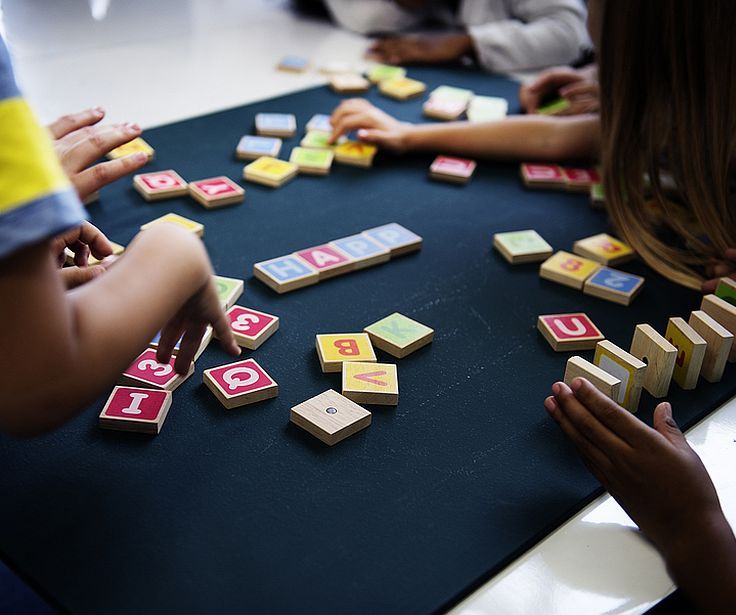
What's For Dinner?
Make dinner time, family time!
Article – Spelling and Vocabulary Games Using the Multiple Intelligences - Page 3

What's For Dinner?
Make dinner time, family time!
Article – Spelling and Vocabulary Games Using the Multiple Intelligences - Page 3


To get the kinesthetic learner motivated, he or she needs to be touching, moving and manipulating objects. Chalkboard games are perfect for kinesthetic learners.
Mastermind
The leader has in mind a secret three-letter word. The players take turns guessing three-letter words that might be the secret word. The leader records the incorrect guesses on the chalkboard. Following each three-letter guess are two digits. The first digit represents the number of letter in the guess that are correct. The second digit represents how many letters are in the correct position within the secret word.
In our example the secret three-letter word is run. This is the record of the incorrect guesses as the players used their powers of deduction to determine the secret word.
Practicing spelling words using Sign Language can be very successful for a rhythmic learner as each word becomes a dance of the hand.
Spelling songs are fun for everyone and make learning the rules so much easier.
Never forget the power of poetry for teaching vocabulary to musical/rhythmic learners.
Group activities are the way to stimulate an interpersonal learner. Competitive or cooperative approaches both work well.
Hold an old-fashioned spelling bee or play a game of scrabble to challenge the competitive learners. A fun cooperative word game is:
Three-Headed Races
Players are divided into teams of three. Two players are the clue givers, the third player guesses the secret words shown to the first two players.
Seat players one and two facing each other and player three with his or her back to the others. Show the first two players the secret word. They will then supply clues one word at a time while the third player tries to guess.
For our example we will use the word swing:
Record the time it takes for the teams to guess the secret words The team with the lowest score at the end of the game wins.
Intrapersonal learners learn best by doing. Give this person the spelling or vocabulary list and have him or her create activities.
Cloze stories are fun to solve and fun to make. Give your intrapersonal learner a list of spelling or vocabulary words and challenge him or her to write a story that contains those words. Now pull the listed words out of the story, replace them with blanks and ask other learners to solve the worksheet.
Creating study guides is another great activity to stimulate an intrapersonal learner. Any short story or picture book can be used. Check out the types of questions asked following a story from a traditional textbook. Encourage a variety of question types: vocabulary, comprehension, characterization, plot, foreshadowing, etc.
Our editor, Jean Fisher, is a former elementary teacher. She offers "What's For Dinner?" as a free service for busy families. One delicious meal is suggested for each day of the week, plus an organized grocery shopping list that can be customized to include all your shopping needs. You will also find two stimulating table topics and one educational after-dinner activity for each day. As one happy visitor commented, "It's everything you need all in one place!"